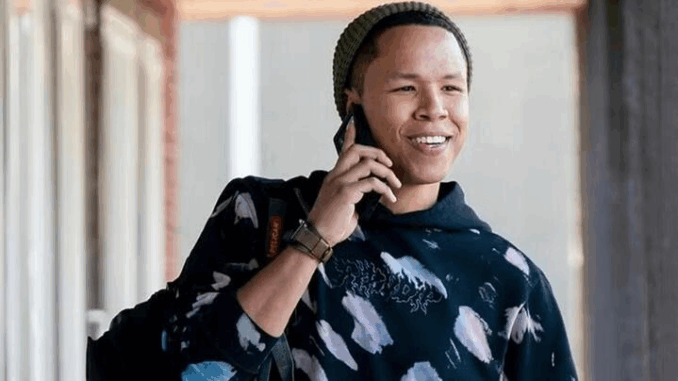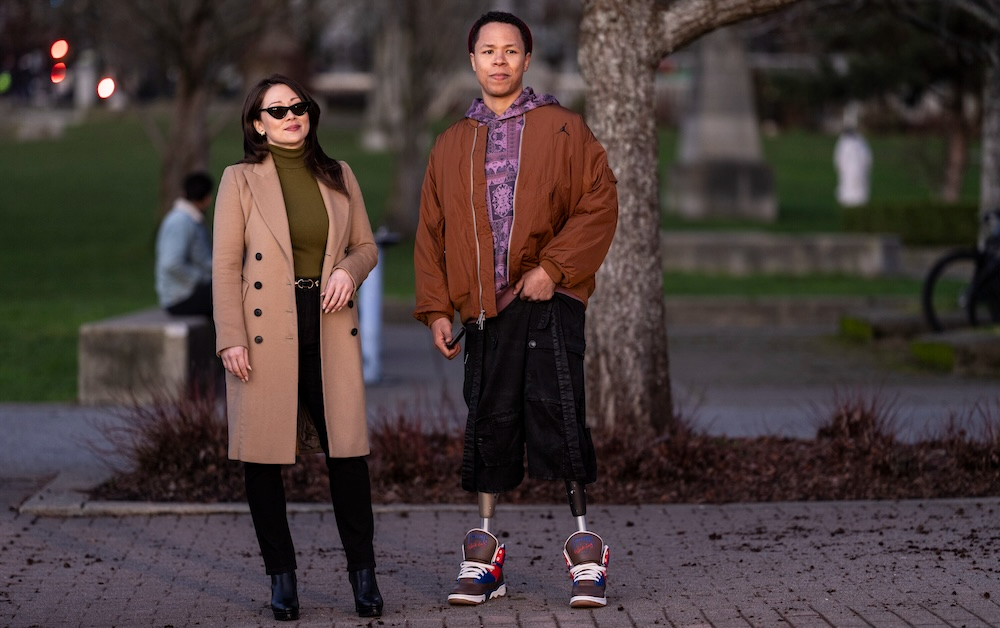
In a world where television heroes often look and act the same, Eric Graise stands out—not just for his undeniable talent, but for the way he redefines what strength looks like. As Bobby Exley in CBS’s Tracker, Graise delivers a performance that’s equal parts sharp, soulful, and quietly revolutionary. His portrayal of the tech-savvy genius who supports Colter Shaw’s missions from behind the screen gives the show its pulse of intelligence—and its beating heart of resilience.
Bobby Exley may not be in the field dodging bullets or chasing fugitives, but he’s just as integral to the operation as Colter himself. The brains behind the operation, Bobby’s the one decoding data, finding digital footprints, and ensuring Colter makes it out alive. Yet what makes Bobby so memorable isn’t just his intellect—it’s his humanity. Graise brings to the role an authenticity and vulnerability that elevate Bobby beyond the archetype of “the hacker.” He’s funny, flawed, and deeply empathetic—a man who, despite physical limitations, refuses to be defined by them.
For those unfamiliar, Eric Graise is an actor, dancer, and advocate who was born without legs. Instead of allowing that to limit him, he’s turned it into part of his artistic voice. His performances radiate a kind of confidence that comes from self-acceptance, not defiance. In Tracker, that authenticity shines through. Bobby’s disability isn’t a storyline; it’s a fact of life—something acknowledged, respected, and moved past. That’s what makes it so powerful. Graise doesn’t need to prove Bobby’s capability; he simply embodies it.
Graise’s journey to Tracker is one of resilience and artistry. Before landing the role, he had already made waves in series like Step Up: High Water and Locke & Key, where he showcased his ability to bring both humor and heart to every scene. He’s also a trained dancer who performed with Full Radius Dance, a physically integrated company that celebrates diversity in movement. That physical awareness translates beautifully into his acting—every gesture, every line delivery, feels deliberate, like choreography. Even seated behind a computer screen, Graise commands the frame.

In Tracker, Bobby’s dynamic with the rest of the team is a highlight. He’s the bridge between logic and emotion—the person who grounds the group when things spiral. His banter with Reenie (Sofia Pernas) is light and teasing, his admiration for Teddi (Robin Weigert) is genuine, and his friendship with Colter (Justin Hartley) carries a subtle brotherhood. Bobby may operate remotely, but he’s never disconnected. Graise plays him with such empathy that you always feel his presence, even when he’s not on screen.
What’s especially striking is how Tracker handles Bobby’s character without falling into cliché. Too often, characters with disabilities are written as sources of inspiration or pity. But Bobby Exley is neither. He’s sarcastic, brilliant, occasionally stubborn, and sometimes wrong—just like everyone else. The writing gives him depth, but it’s Graise’s performance that gives him life. His quick wit and expressive eyes make him instantly relatable. He’s not there to make a point; he’s there to make a difference.
Off-camera, Eric Graise has become a voice for inclusion and authentic representation in Hollywood. He’s outspoken about the need for disabled actors to play disabled characters—and more importantly, for those characters to be written as full human beings. His casting in Tracker is a testament to that progress. In interviews, Graise has said that he never wanted Bobby’s story to revolve around his disability. Instead, he wanted to show a man who’s brilliant at his job, valued by his team, and capable of love, laughter, and growth. And that’s exactly what he’s done.
There’s a certain quiet power to watching Graise work. He doesn’t overplay emotions or chase dramatic moments; he finds the truth in small gestures. When Bobby reassures a panicked client or exchanges a knowing smile with Reenie, you believe every word. That kind of emotional honesty is rare—and it’s what makes Bobby one of Tracker’s most beloved characters. He’s proof that courage doesn’t always roar; sometimes, it codes in silence.
Beyond acting, Graise continues to push boundaries in the entertainment industry. He’s a writer, a producer, and a creative voice who’s constantly challenging expectations. His artistry is driven by curiosity—about people, stories, and the power of connection. Those values echo through Bobby Exley, a character who uses his mind and heart in equal measure to help others find their way.
What Eric Graise brings to Tracker is more than representation; it’s evolution. His performance broadens what audiences think a hero can be. Bobby may not fit the traditional mold, but that’s precisely the point. He reminds us that brilliance and bravery come in many forms—and that true strength lies in authenticity.
Fans have quickly grown attached to Bobby, not because he’s perfect, but because he’s real. He’s the guy you want on your team, the friend who makes you laugh in crisis, the person who keeps the world turning from behind the curtain. And that’s all because of the heart that Eric Graise pours into every line.
As Tracker moves forward, Bobby’s role continues to deepen. His storyline hints at a personal history filled with both humor and heartbreak, and Graise handles each beat with grace. Whether he’s cracking jokes about Colter’s latest risk or reflecting quietly on loss, Bobby feels alive, layered, and endlessly human. That’s what great acting does—it makes you forget you’re watching fiction.
Eric Graise may not be the loudest voice in the room, but his presence resonates long after the credits roll. In Tracker, he doesn’t just support the mission; he symbolizes it—the search for truth, belonging, and purpose. And in doing so, he’s not only transformed a character but also redefined what heroism looks like on modern television.
Sometimes, the bravest thing a person can do is simply show up as themselves. That’s what Eric Graise does every time he steps into Bobby Exley’s shoes—or wheels. And it’s why he’s quietly changing the face of television, one authentic story at a time.
